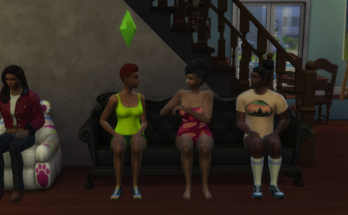“Forget the browser: real-time is the new crack.” (this and all following quotes by Geert Lovink)
Next up on my private pursuit of the longue durree, the slow form of books, the forgoing of the browser for a summer of deep catch-up: Networks without a Cause. Geert Lovink writes in a tempo well-matched to the Internet culture he theorizes (“why store a flow?”) in a sometimes overwhelming rush of hard-cutting spot-on aphorisms, often strung one after the other after the other, leaving this reader breathless and often distraught (given the clarity, wisdom, and dour take of the criticism): like a cutting intellectual thrill ride with a mission. “The Internet can be ‘secondary’ and dominant at the same time: whirlpool dialectics.”
“Let’s praise blogs.” Thanks! Lovink thinks a lot about blogs, as well as Internet theory (critical Web 2.0 studies is the book’s [and above video’s] subject and tactic), although not so much blogs as theory (a blindspot, clearly: Theory comes in Books by Big Boys; theory is content). Rather, he looks at blogs and other new media practices as places from whence to understand web 2.0 and then “theorize.” Admittedly, after reading him on blogs in his Book, I feel even more self-aware (and female) about my form and practice than usual. “Blogs create a unique mix of the private (online diary) and the public (PR-management of the self.”)
While I will agree that this unsettling mix of private and public is definitive(ly female), Lovink’s prescient thinking about the insidious role of corporate positivity, anonymity, individuality, and community online would be deepened by the addition of feminist theory (and practice). This is to say, that if one theorizes (and practices) the me and the we of the Internet from an orientation where X-reality social justice is still unrealized, and therefore is one’s cause, then a situated and safe self, and her community, might demand friendliness, care, and embodiment in ways that are neither corporate, private, nor anonymous. “Meanwhile, welcome to the social.”
“Google is built upon positive affirmation.” He’s right, I do find it hard to be critical here, in this format and forum (although I am doing my best in this post.) In a “real” scholarly essay that ends up on paper—a long time away and in a place far far from me—I’m almost paid to do be critical; and I’ve done really well if I am distanced, analytical, even hostile. Here, I write differently: in real-time to a few people who, according to Lovink (and with this I concur), will read but don’t comment-back (I can almost feel you reading; and I can see the count on my Dashboard). That is, if I keep it short. So Lovink is right again: when I blog, I take into account “the pressure to remain light and positive.” But, come to think of it, as a feminist scholar I have sometimes used just this tone and method in my offline academic work (even Books!) … for reasons theoretical and political.
Given that I have chosen to write and make my scholarly work about communities of which I am a political and social member (AIDS activists, feminist and queer media, Internet feminists), this has necessitated, at times, and towards particular ends, an almost Internet-like friendliness—even in my Books. And this friendliness—inspired by shared values and goals, and an understanding that one might be working with a particular person or people in X-reality settings for many years—is not the same thing as a like button, or even a friend on Facebook because it is deep, principled, studied, long-lasting, and committed (like a book!).
“Within Facebook there are no hippie dropouts, just a pathological dimension of commitment to the Real Self going hand in hand with a comfort of being alone among friends in a safe, controlled environment.” However, given the ongoing and deep effects of racism, sexism, xeno- and homo-phobia and the like, online and off, some selves want to be seen and heard and self-constituting within settings where they also feel safe. X-reality is not egalitarian in regards to vulnerability. But this is not the safety of numbness, dumbness, the hegemonic, or over-consumption, as Lovink might have it by looking to Facebook and other generic and corporate practices of social media but rather the conscious and careful building of a political community and self so as to produce the possibility for critical dialogue because one hopes and moves for empowerment and action (better to look to political or professional blogs; the Internet with a cause).
Some Internet selves wish to be seen by those who share their values and goals. “I would venture to guess that Anon, who wrote so many poems without signing them, was often a woman.” (this quote is Virgina Woolf in Lovink but he doesn’t seem to get it, even as he uses her: anonymity has hidden women away as much as its allowed us to speak.) “The burka proves to be the ultimate provocation to Western transparency.” But many women strive to be heard and seen and respected.
“When we blog we become an individual (again).” Yep, I blog to be one possible me (although certainly not anymore Real than anywhere else), one crafted version of this person with her history and beliefs, and from there, that me, uses this technology to engage and learn with others to build and maintain community, and to hold a space for alternative, activist, radical culture that tends to be under-served and under-seen or -heard in this swirl of the popular.

